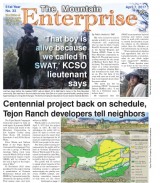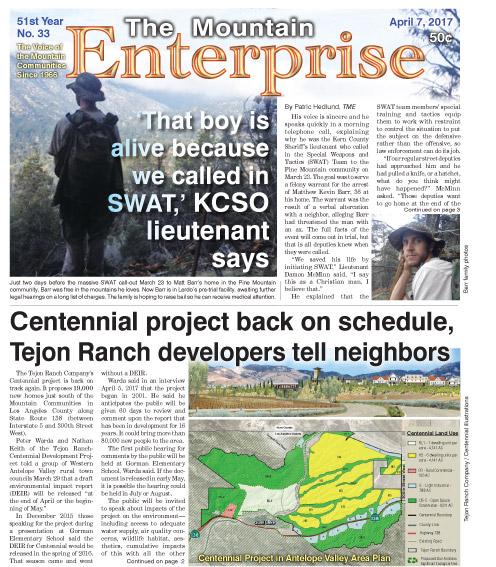The concerns discussed in this report from NPR, in their The Call In: Rural Life feature, are parallel to concerns of people who want to live in the Mountain Communities, but need robust internet service to run their businesses from this area. This NPR report from Friday, April 7 has two parts. The first part speaks about rural schools. The second part is about measures the community took to establish fast and reliable broadband in a rural area in Minnesota. You can click on the audio stream to hear the NPR report. Here is the transcript of the second part:
GARCIA-NAVARRO: As we heard, it can be hard to hold on to people in rural places when there’s a lack of infrastructure to support them. The absence of a fast and reliable Internet connection is one major problem. Mark Erickson has been trying to solve that. He’s the head of the economic development agency in Winthrop, Minn. And he told us how, until recently, a lack of broadband was affecting his neighbors.
MARK ERICKSON: A third of our students in our school districts live in the country, and they were unable to do their homework when they got home. Most of them had dial-up, which is just archaic. Some used satellite connections, which were good when the weather was fine, and some had poor DSL from their phone companies.
GARCIA-NAVARRO: Erickson is running a project that will build a fiber-optic network across 10 communities.
ERICKSON: We formed a cooperative, and the subscribers to our network are the owners. So let me give you an example. To build a fiber-optic network and connect people in towns, the cost per home or per business is about $2,500. To build that network and connect the farms, it’s about $10,000, about the cost of a used pickup.
Now, the people in this area felt that those kinds of per home, per farm investments are OK because what the Internet can do for education and health care is amazing. We just feel it’s an investment that the phone companies and cable companies are unable to make. So the folks in this very conservative part of Minnesota decided that they wanted to put their tax dollars on the line and enable this network.
GARCIA-NAVARRO: The companies aren’t willing to make those investments because they have to have a higher return for their shareholders.
ERICKSON: Correct. These are very small towns. Our largest town is 2,300 people, and our smallest town is 400. Some people say its a market failure, you know. And here’s this new technology that people want and they need, but the business plans of the incumbents just don’t allow them to make that necessary investment.
GARCIA-NAVARRO: How has fixing something as fundamental as Internet connection had an effect on other things?
ERICKSON: Well, it helps the present businesses. We’ve had several here say that hooking up to the fiber network has increased their ability to do business greatly. But we also saw this as something for the future, like you allude to. We expect our children to leave our communities when they graduate from high school and go to college and learn about life. But they have to have a reason to return. And the millennials today, and those who follow, will find it difficult to come back to a community that doesn’t offer the kind of Internet connection that they want. What we have our fingers crossed for, and it looks pretty good, we believe we’ve attracted a four-year medical school to our area, which will change the face of our communities in a very positive way for a long, long time, if it happens. And that was a direct result of the fiber network.
GARCIA-NAVARRO: That was Mark Erickson of Winthrop, Minn. We also heard from Cheryl Sebrell in Littleton, N.C.
This is part of the April 7, 2017 online edition of The Mountain Enterprise.
Have an opinion on this matter? We'd like to hear from you.


